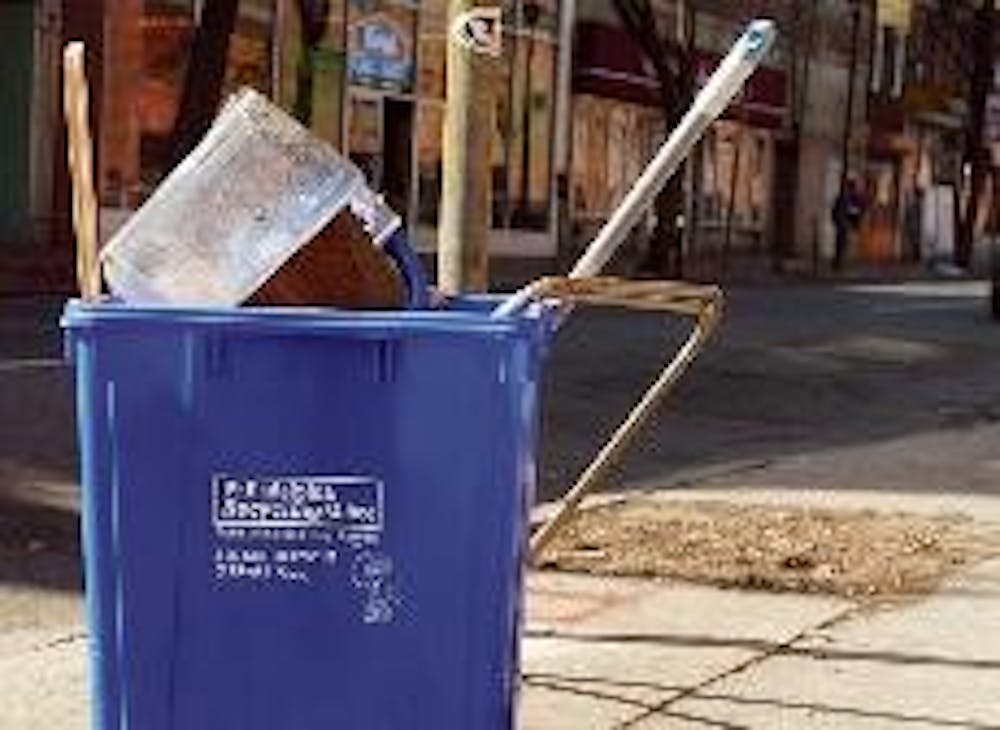In the very near future, laziness will no longer be an excuse for area residents not to recycle.
Beginning March 5, the City of Philadelphia Streets Department will implement its Single Stream Recycling methods in West and Southwest Philadelphia.
"Single Stream is the wave of the future, and the wave of the present for a lot of cities already," said Evan Belser, community organizer for the Recycling Alliance of Philadelphia.
The Single Stream method refers to a recycling collection technique in which different materials - paper, plastics, aluminum and glass - are automatically separated after collection.
Experts believe that simplifying the process will increase participation in the recycling effort.
"The easier you make it on the resident, the better," said Belser. "People have better things to think about than how to recycle."
In other parts of the city, Single Stream has been a huge success. In Northeast Philadelphia, where the program was launched last summer, there has been an increase of nearly 30 percent in recycled materials since it was implemented.
"Philadelphians want to recycle. They are very pro-recycling," said Joe Minott, executive director of the Philadelphia Clean Air Council. "They are chomping at the bit to participate."
However, despite this enthusiasm, the city's recycling statistics suggest there is plenty of room for improvement.
Philadelphia hovers near a 6 percent recycling rate, meaning only 6 percent of the city's waste is recycled - the second worst of any large city in the country.
In comparison, Los Angeles has a recycling rate of between 45 and 50 percent; some experts believe 33 percent of materials in average households can be recycled.
"We have one of the worst records in terms of recycling of any city in the U.S.," said Joe Minott, executive director of the Clean Air Council. There is "a disgracefully low recycling rate in Philadelphia."
And things aren't much better on campus at Penn.
According to College sophomore Kevin Levy, director of the Penn Environmental Group, the University ranks dead last among the Ivies in terms of recycling, with a rate of 12 percent. Cornell University, by contrast, recycles 57 percent of its materials. The school closest to Penn was Brown University, at 21 percent.
With a combination of enthusiasm for recycling and the emergence of new technologies, such as Single Stream collection, it seems odd that Philadelphia would have such low recycling rates.
The problem lies, experts say, in the city's inability to provide certain basic services like an all-inclusive recycling bin or a high-quality grass-roots education effort.
Minott and Belser also believe that, while implementing Single Stream methods are a good start, the city is not moving quickly enough to expand the program throughout Philadelphia.
"We think it could be done within a year," Minott said. "The city says it's going to take three years."
Single Stream recycling's arrival to West Philadelphia then, is only the beginning of a larger effort to improve recycling throughout the city.
"Single Stream is a step in the right direction," said Belser. "But it falls drastically short of what we need."



